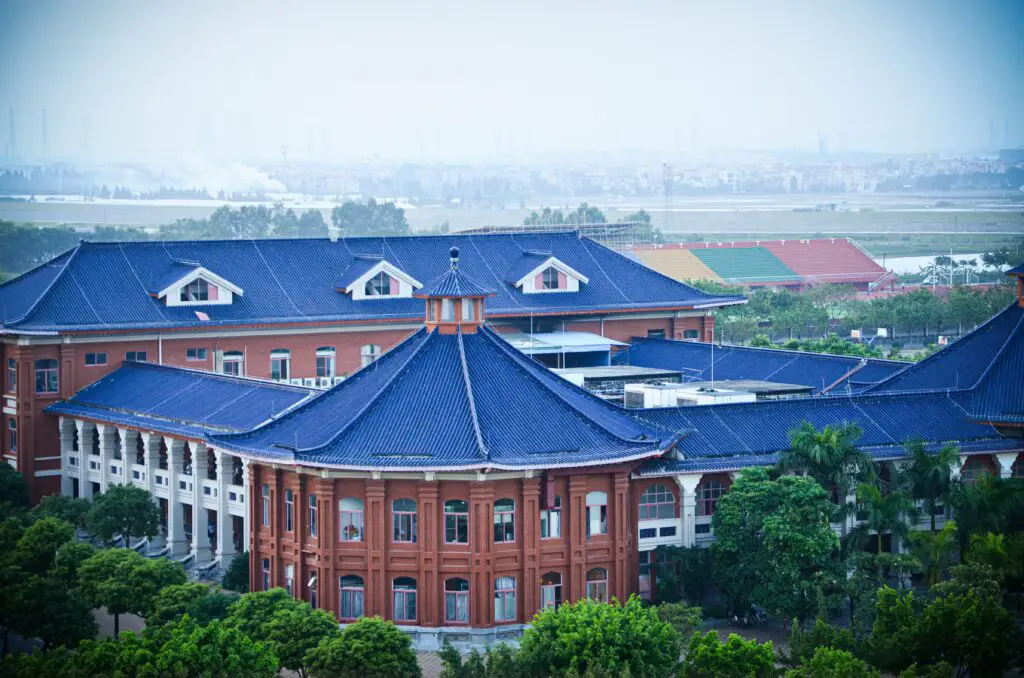Introduction
The world’s most populated nation, China has a quickly expanding economy. China has been making significant investments in its educational system for many years because it sees education as a key component of its growth plan. China consequently has one of the most extensive and varied higher education systems in the entire world. In this post, we’ll discuss the country’s educational system and provide an answer to the topic of how many colleges there are in China.

How Many Colleges Are In China?
According to figures from the Ministry of Education, there were about 2,900 universities and colleges in China as of 2021. These organisations include everything from tiny, niche colleges to huge, all-encompassing universities with tens of thousands of students. Peking University, Tsinghua University, and Fudan University are a few of the most esteemed universities in China. China has been attempting to increase access to higher education in recent years, with a special focus on raising enrolment in universities and institutions with a vocational focus.
The Structure of Higher Education in China
China’s higher education system is divided into multiple levels, with various institutions offering a variety of programmes. The research-focused universities, including Peking University and Tsinghua University, are at the pinnacle of the system. These schools provide undergraduate, graduate, and doctorate programmes in a variety of subject areas. They are extremely selective and frequently demand excellent grades on the gaokao, or national college entrance exam.
The comprehensive universities, which provide a wide range of programmes in the arts, sciences, and social sciences, are located beneath the research-oriented institutions. These colleges still have a solid academic reputation while being less research-focused than the best universities. In comparison to the best colleges, they also tend to be less selective, however admittance to some programmes might still be difficult.
The vocational colleges and universities, which provide technical education and vocational training, are at the bottom of the higher education system. These institutions are playing a bigger role in China’s educational system as it seeks to increase the number of talented workers it has in fields like engineering, technology, and healthcare.
Enrollment in Higher Education
In recent years, China has worked to broaden access to higher education, with a special focus on raising enrolment at universities and institutions with a vocational focus. China’s higher education enrollment rate increased from 20% in 1999 to 51.6% in 2020. By 2025, the government wants to see a 55% increase in enrollment.
In spite of these initiatives, China still has wide gaps in access to higher education. While students from rural regions and low-income households are more likely to enrol in technical institutions and universities, students from urban areas and wealthy families are more likely to attend elite universities. In addition, there is a gender imbalance in higher education, with only 42% of undergraduate students being female.
Challenges Facing China’s Higher Education System
China’s higher education system faces a variety of difficulties despite its fast growth. Making sure that the education being delivered is of high quality and relevance is one of the main issues. There is rising worry that graduates in China are not sufficiently equipped for the labour market as many schools and universities struggle to keep up with the needs of a quickly changing economy.
Academic freedom is a problem that China’s higher education system must also deal with. Despite the fact that academic freedom is guaranteed by China’s constitution, there are still many restrictions on what professors and students are allowed to say and do. Academic freedom in the nation has been weakened as a result of the government’s recent crackdown on dissent.
Funding for Higher Education in China
In addition to tuition fees, research grants, and contributions, the government provides the majority of the funding for China’s higher education system. With a focus on funding for research and development, the government has recently increased its investment in higher education. Yet, there are still funding gaps across institutions, with the best universities receiving the majority of financing.
Internationalization of China’s Higher Education System
With a focus on enticing international students and collaborating with universities around the world, China has been attempting to internationalise its higher education system in recent years. China has been attempting to increase the standard of education and research at its institutions in order to draw in more foreign students. Many universities now offer programmes in English.
Challenges Facing International Students in China
China has been attempting to increase the number of foreign students enrolling in its colleges recently, but these students encounter a variety of difficulties. The language barrier is one of the main obstacles because many programmes are taught in Mandarin Chinese. Moreover, cultural barriers and a lack of support from their institutions may be experienced by overseas students.
Conclusion
In conclusion, China’s extensive and intricate higher education system has undergone a lot of adjustments lately. China has one of the largest higher education systems in the world, with more than 2,900 universities and colleges. The nation has been making significant investments in higher education, with an emphasis on research and internationalisation. Notwithstanding these improvements, the system continues to face issues like financing imbalances, a lack of emphasis on innovation and critical thinking, and difficulties faced by overseas students. China’s higher education system will probably have a significant impact on how the nation develops in the future.
FAQs
- How does the cost of tuition in China compare to other countries?
China’s tuition rates vary based on the institution and the programme, although they are typically less expensive than in many other nations, such as the US and the UK.
- How important is the reputation of a university in China?
In China, a university’s reputation is crucial, especially when it comes to getting a job after graduating. The most famous universities in China, like Peking University and Tsinghua University, are extremely competitive and are held in high regard.
